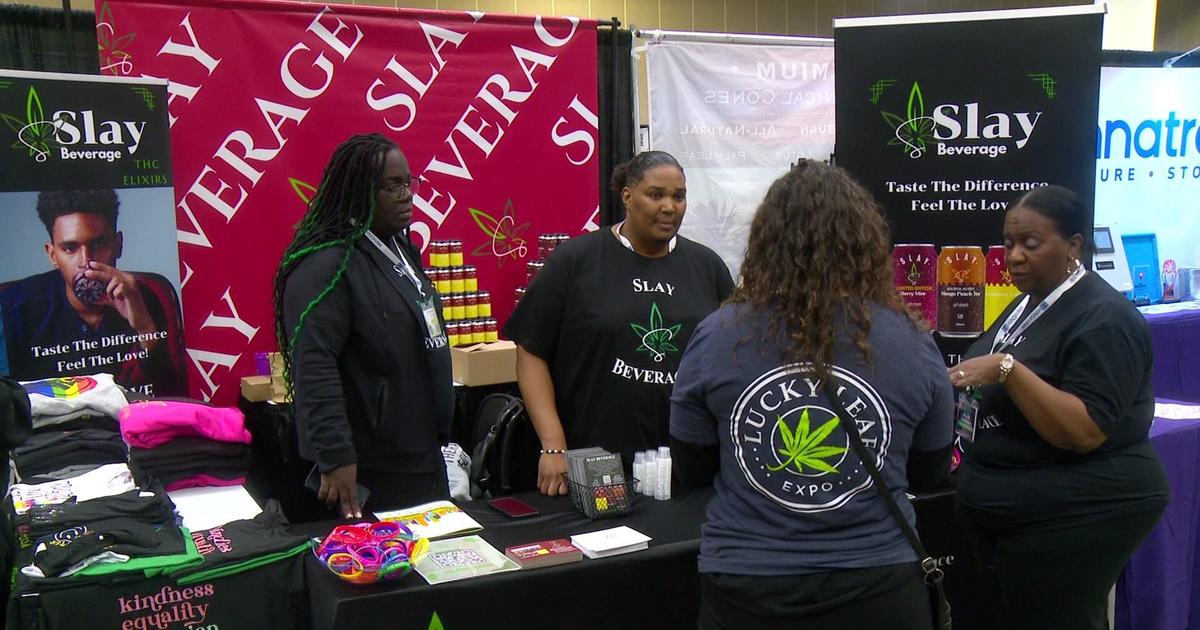COVID Restrictions: Walz To End Capacity Restrictions By May 28, Mask Mandate By July 1
MINNEAPOLIS (WCCO) -- Gov. Tim Walz has announced that the state will end remaining restrictions on outdoor limits and indoor activities by May 28. It's part of his three-step timeline to end all COVID-19 restrictions, which also includes lifting the mask mandate by July 1 or sooner.
"It's been a long journey, but we did the things that needed to be done," Walz said at a press conference Thursday. "The job's not done, but the plan to finish it is on us now."
The first step in the plan takes place this Friday, with more loosening of restrictions taking place primarily in outdoor settings. The limit will be removed for outdoor dining, events, and other get-togethers. The mask requirement will also end for outdoors except for large venues with over 500 people.
The mandatory closing time of 11 p.m. will also end for bars, restaurants and "food and beverage service at other places of public accommodation."
The second phase of the plan is ending capacity and social distancing limits on May 28. These include ending the requirement for face coverings indoors and for outdoor events that exceed 500 people.
"There will be no new safety requirements for businesses, though they must maintain their plans to keep their employees and customers safe – as they have from the beginning of the pandemic – guided only by a minimal universal state guidance document," the governor's office said.
The third phase, ending the mask mandate, is set for when 70% of the state's eligible population has received at least one dose of the vaccine. The governor's office says the state is on track to reach this benchmark by the end of June. Even so, if the 70% benchmark isn't reached, the mask mandate will still end on July 1.
"We're going to have a great summer, and this is in front of us right now," Walz said.
Local governments will still be able to set their own mask policies and other requirements beyond July 1.
Walz says the timeline of ending restrictions comes as the most at-risk Minnesotans -- seniors, educators and front-line workers -- have received their vaccination. Nearly 90% of those 65 years of age and older have gotten at least one dose.
"Our nation-leading vaccination effort has put us in a strong position to safely transition toward life as we used to know it," Walz said. "The pandemic is not over and we have work to do. But from the State Fairgrounds, to doctor's offices, to retrofitted Metro Transit buses that deliver vaccines where they're most needed, Minnesotans now have more opportunities than ever to get the vaccine when and where they want to. As cases recede, more people get vaccinated every day, and vaccines are readily available to all who want it, we can now confidently and safely set out our path back to normal."
As for schools, since those under 16 years old have yet to become eligible for vaccination, the Safe Learning Plan will continue until the end of the school year.
Walz says additional protections will remain in place, including an eviction moratorium and a ban on price gouging.
"Our path forward's pretty clear. Minnesota, now, the next three weeks really, it's on you," Walz said. "Don't blow this now. We've got the chance to get there."
The impact the governor's team says will also be on the state economy.
"Vaccines equal confidence and confidence equals economic growth," DEED Commissioner Steve Grove said. "We ask all Minnesotans to get out and shop to get out to your concert venues."
Walz also said the end of restrictions could even lead to an end to stalemates at the Capitol and hopefully newfound camaraderie between parties.
"I am going to invite them over for a barbecue," he said.
MINNESOTA GOP RESPONDS TO TIMELINE
Minnesota House GOP members responded to the announcement, saying the dial turns are "much slower" than timelines set out by other states.
"More than fourteen months ago, we were told we needed two weeks to flatten the curve, protect our health care system, and prevent hospitals from being overwhelmed," Rep. Kurt Daudt, R-Crown, said. "The data clearly shows we've made incredible progress reducing case counts and getting Minnesotans vaccinated, but the Governor insists on holding on to powers he doesn't need — it's time to open up and end the emergency powers."
Rep. Dave Baker, R-Willmar, a longtime member of the hospitality industry, also released a statement.
"For more than a year, I have been working with the hospitality industry to try and engage the Governor's office on a roadmap to safely reopen Minnesotan," Baker said. "Time and time again, our efforts fell on deaf ears. Finally the Governor seems to be listening — at least to the large venues and sports teams — but it's too little too late for many businesses who have been asking for certainty and a seat at the table for months. We don't need the emergency powers, and we don't need to be micromanaging Minnesotans. Leadership matters and real leaders listen to stakeholders and determine the best path forward—together. On this leadership test, the Governor has failed.
For Republican Senate Majority Leader Paul Gazelka of Nisswa, the announcement "not good enough, not soon enough."
"My reaction today is simple: Not good enough and not soon enough. The emergency is over and the mandates need to end," Gazelka said. "I said in January, when the vaccines were available to young, healthy people, the emergency is over. We've been there for weeks. It's about time the Governor recognizes that vaccinations were the key. And while Minnesota stumbled mightily out of the gate to vaccinate the most vulnerable, we now have an abundant supply and appointments."
Gazelka added that the timeline won't allow for students to finish the year with "normal" graduations, celebrations and participation in sports and other activities.
"It's too late for many to find summer camps and plan vacations in-state. Outdoor spaces are still limited by distancing despite all the evidence that the outdoors is safe. A 'normal' summer is still a long way off," he said.
Last week, Walz said it appears the state's COVID cases are plateauing after the recent spike, when Minnesota was ranked No. 2 in the nation for variant cases. The latest positivity rate, a seven-day rolling average, has decreased to 5.9% after a recent peak of 7.5% on April 8.
Walz said numbers are still high, but they're decreasing. According to the Minnesota Department of Health, the state is still at "high risk" for community spread, with about 43% of reported cases tied to an unknown exposure source.
The last rollback of COVID restrictions came in mid-March, when restaurants and bars were allowed to operate at 75% capacity, and gym capacities increased to 50%. Capacity limits at religious services and salons were completely lifted. Entertainment venues were also allowed to up indoor and outdoor occupancy levels from 25% to 50%, with a maximum of 250 people.
As of May 3, more than 58% of eligible Minnesotans have received at least one vaccine dose, which is more than 2.5 million people. Nearly 50% are fully vaccinated.



